Tennessee Johnson

Brief Synopsis
Cast & Crew
William Dieterle
Van Heflin
Lionel Barrymore
Ruth Hussey
Marjorie Main
Regis Toomey
Film Details
Technical Specs

Synopsis
In the spring of 1830 in the Tennessee Valley, Andrew Johnson, a young stranger, falters into the small town of Greenville and thirstily drinks from a water trough in the yard of the village blacksmith, Mordecai Milligan. As Andrew begins to methodically stitch his torn trouser leg, he looks up and sees Mordecai and his companions, Mrs. Fisher and Blackstone McDaniel admiring his mending abilities and staring at the leg iron binding his ankle. When Mordecai tosses him a file, Andrew offers to patch his britches in gratitude and explains that he is a tailor's apprentice who is running away from his servitude. Moved by Andrew's plight, Mordecai uses a hammer and chisel to break the shackles. By enduring the pain of the pounding hammer, Andrew wins the respect of the group, and Mrs. Fisher urges him to stay on as the town tailor. Also witnessing the incident is latecomer Eliza McCardle, Greenville's librarian. Andrew sets up shop, and when Eliza comes one day to pick up a dress she had left along with written instructions. Andrew, an unschooled and inarticulate man, shamefully admits that he cannot read or write and offers to tailor her clothes in exchange for tutoring. Although he proves to be a swift learner, Andrew is embarrassed by his humble beginnings as a non-landowning "mudsill" until he reads the Bill of Rights and is inspired by its precepts that all men are created equal and therefore should have the right to vote. Prodded by Eliza, Andrew enters village politics and finds himself at odds with the property owners represented by Sheriff Cass, who believes that non-land owners should be denied the vote. When Cass comes to ask Eliza, now Andrew's wife, to persuade him to cancel a rally calling for the vote, Andrew, infuriated, pockets his pistol and brusquely proceeds to the meeting. When Cass tries to interfere, a fight ensues and Mordecai is killed in the mêlée. Mrs. Fisher and the others call for retaliation, but Andrew pleads for reason and adherence to the law. With the support of the town, Andrew is elected the new sheriff. With the approach of the Civil War in 1860, Andrew, now the U.S. Senator from Tennessee, opposes succession, arguing that the Union must be preserved at all costs. When succession is declared, Andrew refuses to join his Southern colleagues in their exodus from the Senate chambers and is declared a traitor. As a general in the Union army, Andrew is credited with saving Nashville for the Union. After the war, Abraham Lincoln moves to appoint Andrew his Vice-President over the objections of Thaddeus Stevens, a Pennsylvania congressman who seeks vengeance on the South. Nevertheless, Andrew is appointed as Lincoln's Vice-President, and on inauguration day, Andrew, sick and unused to drinking, imbibes some celebratory brandy, and as a result, is drunk by the time he is sworn in. Andrew believes that he has disgraced his country, but Lincoln, understanding the circumstances surrounding the incident, sends him a letter of forgiveness. When word comes of Lincoln's assassination, Andrew ascends to the presidency, vowing to uphold Lincoln's policy of reconciliation with the South, even though he secretly suffers feelings of self-doubt and inadequacy. Soon after, Andrew is visited by Stevens, Congressman Hargrave and Senator Jim Waters. Stevens, desirous of subjugating the Southerners by confiscating their lands and denying them representation in Congress, offers Andrew a guaranteed second term if he agrees to support his exclusionist policies. When Andrew rejects the offer, Stevens threatens him with impeachment and reminds him that with no Vice President in office, Waters would succeed him. Losing his temper, Andrew denounces Stevens and puts his faith in the people. Upon discovering that one of his Cabinet members has been spying for Stevens, Andrew dismisses the man without consent from the Senate, thus violating the law that prevents a President from dismissing a Cabinet member appointed by a previous President who died in office. Stevens, disabled and suffering from ill health, is invigorated by Andrew's transgression and pulls himself out bed to visit him. Rankled by Stevens' threats, Andrew signs a proclamation pardoning all those who fought in the war between the states. When Stevens offers to halt impeachment proceedings if Andrew rescinds the pardon, Andrew refuses. Contemptuously dubbing Andrew the "tailor," Stevens convenes an impeachment hearing, charging Andrew with being a drunk and violating the Tenure of Office Rule. Following his lawyers' advice, Andrew does not appear at the trial, until one day, Blackstone, now a Senator from Tennessee, informs Andrew that his witnesses will not be allowed to testify. Furious, Andrew bursts in the hearing to defend himself and is greeted by the jeers of the onlookers. Stevens expects Andrew to lose his temper, but instead, he eloquently defends himself by reading Lincoln's letter of forgiveness and accusing Stevens of trying to tear the nation apart, the very antithesis of Lincoln's ideals. As the vote for impeachment is called, Senator Huyler, one of Stevens' minions, faints and is carried out. Aware that he needs Huyler's vote to win, Stevens stalls for time until Huyler can be revived. Disgusted by Stevens' tactics, the Chief Justice ousts him from the hearing. When Huyler, barely conscious, is dragged back into the room, he raises his head and votes not guilty, thus acquitting Andrew. Andrew serves out his presidency, and years later, when he is re-elected to be the senator from Tennessee, he welcomes his colleagues from the South, whose readmittance into the halls of government he helped shepherd.

Director
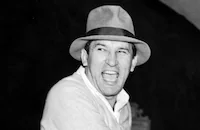
William Dieterle
Cast

Van Heflin
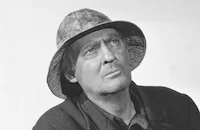
Lionel Barrymore

Ruth Hussey

Marjorie Main

Regis Toomey

J. Edward Bromberg
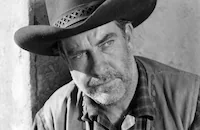
Grant Withers
Alec Craig

Charles Dingle
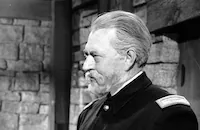
Carl Benton Reid

Russell Hicks
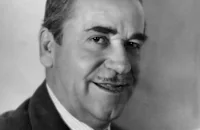
Noah Beery Sr.
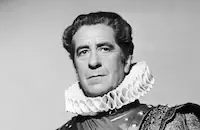
Robert Warwick

Montagu Love
Lloyd Corrigan

William Farnum
Charles Trowbridge

Lynne Carver
Russell Simpson
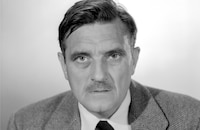
Morris Ankrum
Harry Worth

Bernard Zanville
Robert E. O'connor
Tom Herbert
Mark Daniels
Roger Imhof

Lee Phelps
Frank Austin
Carl Stockdale
Henry Sylvester
Robert Dudley
Davison Clark

Brandon Hurst
Harlan Briggs
Hugh Sothern
Charles Ray
Frederick Burton

James Kirkwood
Herbert Heyes
Frank Dawson
James Warren
Louis Mason
Cy Jenks
Allen Pomeroy
Duke York

Jeff Corey
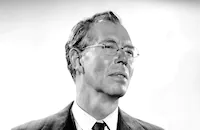
Walter Baldwin
Michael Audley
Ernie Alexander
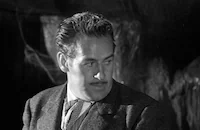
Roy Barcroft
Ed O'neill
Arthur Space

Ludwig Stossel
Bobby Stebbins
Sonny Bupp
Ferdinand Munier
Gladden James
Paul Everton
Henry Roquemore
Jack Norton
Art Belasco

Richard Nichols
Patsy Nash
Richard Hall
Dewey Robinson
Syd Saylor
Milton Kibbee
Al Hill
Harry Strang
Lee Prather
Frank Hagney
Francis Stevens
Harrison Greene

Louise Beavers
Gayne Whitman
Ruth Robinson

James Davis
William Roberts
Frank Jaquet

Emmett Vogan
Pat O'malley
Albert Morin

Ray Teal
Harry Humphrey
Harry Holman

William Wright

Harry Cording
Jerry Jerome
Jack Kenney
Jack Zoller
Lew Short
Ralph Mccullough
Al Ferguson
Ben Hall
Roger Gray
Murdock Macquarrie
Joe Bernard
Jack Daley
Stanley Price
Philo Mccullough
Frank O'connor
Bob Ryan

William Davidson
Anna Chandler
Bob Ingersoll
Christian J. Frank
John Ince

Lloyd Ingraham

John Hamilton
Cliff Clark
Ivan Miller
Leila Mcintyre
Bert Roach
George Carleton
Crew
Lon Anthony
Irving Asher
John L. Balderston
Stanley Briggs
Malcolm Brown
Jack Dawn
Cedric Gibbons
Milton Gunzberg
Hugh Hunt
Robert J. Kern
Alvin Meyers
Warren Newcombe
Sloan Nibley
Wells Root
Harold Rosson
Major Roup
J. Walter Ruben
Douglas Shearer
Al Shenberg
Herbert Stothart
Edwin B. Willis

Film Details
Technical Specs

Articles
Tennessee Johnson
The screenplay (by John Balderston and Wells Root), follows Johnson from his troubled childhood, during which he was beaten while serving as a tailor's apprentice, through his education and political awakening under the tutelage of Eliza McCardle (Ruth Hussey), a school teacher whom he later marries. These events, of course, serve as a prelude to his unexpected term as President when Abraham Lincoln is assassinated. Easily the most effective portion of the film involves Johnson's battle with Senator Tadd Stevens (Lionel Barrymore), a Radical Republican who trumped up the charges that led to the threat of impeachment.
Technically speaking, Heflin, an Oscar winner the previous year for Johnny Eager (1941), was the star of Tennessee Johnson. But it's old-pro Barrymore, the eldest of the acting Barrymore siblings, who walks away with the movie. At the time, Barrymore was deeply entrenched in a string of tepid B-pictures, including the hugely popular Dr. Kildare series (1938-1941). Tennessee Johnson was a welcome opportunity for him to chew up the scenery, and he does it with gusto.
This chance to branch out a bit apparently effected Barrymore's personal life. During shooting, he briefly fled the film set to attend the wedding of his niece, Diana, whose father, John, had recently passed away. Stunned by his open display of emotion, Diana later said that it was the first time he had ever acted "like an Uncle".
The film's director, William Dieterle, definitely got the job based on his resume. Though he made a wide variety of films during his career, he had previously helmed several other successful biopics, including The Story of Louis Pasteur (1936), The Life of Emile Zola (1937), for which he won an Oscar®, and Dr. Ehrlich's Magic Bullet (1940), about the discovery of penicillin. By the way, Tennessee Johnson was called The Man on America's Conscience when it was later released in England. This overstated the case considerably, but made more sense to the overseas crowd than MGM's original title.
Directed by: William Dieterle
Producer: J. Walter Ruben Screenplay: John L. Balderston and Wells Root, based on a story by Milton Gunzburg and Alvin Meyers
Editing: Robert Kern
Cinematography: Harold Rosson
Art Direction: Cedric Gibbons
Music: Herbert Stothart
Special Effects: Warren Newcombe
Cast: Van Heflin (Andrew Johnson), Ruth Hussey (Eliza McCardle), Lionel Barrymore (Tadd Stevens), Marjorie Main (Mrs. Fisher), Regis Toomey (McDaniel), Montagu Love (Chief Justice Chase), Morris Ankrum (Jefferson Davis), Porter Hall (The Weasel), Sheldon Leonard (Atzerodt).
BW-104m. Closed captioning.
by Paul Tatara

Tennessee Johnson
Quotes
Trivia
Notes
The working titles of the film were The Man on America's Conscience and Andrew Johnson. A written prologue to the film reads: "The Senate of the United States in 1868, sat as a High Court in judgment upon Andrew Johnson, who succeeded Abraham Lincoln as President. In the only great State trial in our history, President Johnson was charged with violation of a law which forbade him to dismiss a member of his Cabinet. In 1926, the Supreme Court pronounced this law unconstitutional-as Johnson had contended it was. The form of our medium compels certain dramatic liberties, but the principal facts of Johnson's own life are based on history. In the Spring of 1830-in a Tennessee Valley-our story begins."
According to pre-production news items in Hollywood Reporter, Laraine Day and Martha Scott were both considered for the role of "Eliza McCardle," and Franz Waxman was supposed to score the film. News items and Hollywood Reporter production charts include Lewis Stone and Grant Mitchell, but they were not in the released film. Although Porter Hall and Sheldon Leonard were included in the CBCS list, their roles were cut from the released film. According to a October 2, 1942 Hollywood Reporter news item, Albert Godderis, a famous chef, was to portray a Senator, but his appearance in the released film has not been confirmed. Irving Asher's name appears on all Hollywood Reporter production charts as the film's producer, but screen credits and various news items list J. Walter Ruben as the sole producer. Ruben died of pneumonia in early September 1942; Tennessee Johnson was his last film. The film also marked the last appearance of actor Charles Ray (1891-1943), who was a popular leading man in the 1910s and early 1920s. A July 20, 1942 Hollywood Reporter news item noted that Van Heflin was suffering from appendicitis, necessitating the production to be shot around him, but his illness apparently did not require a temporary halt of filming.
Andrew Johnson (1808-1875) was, as depicted in the film, a tailor's apprentice and self-educated man. After serving in Congress and other government positions, Johnson became Vice-President under Abraham Lincoln in 1865 and followed Lincoln into the White House after Lincoln's April 1865 assassination. Johnson's policies on Reconstruction after the Civil War were opposed by powerful Pennsylvania Congressman Thaddeus Stevens (1792-1868). At the end of the Civil War, Stevens, who had been a strong abolitionist, championed the rights of the newly freed slaves. His opposition to some of Johnson's Reconstruction policies led to his advancing articles of impeachment against Johnson.
Although a September 9, 1942 Hollywood Reporter article indicated that Tennessee Johnson fell into the OWI "Issues of War" category and that the OWI would welcome more films of its ilk, a September 24, 1942 article in the Los Angeles-based, African-American newspaper California Eagle reported that the OWI had "moved against the M-G-M film Tennessee Johnson...Lowell Mellett, director of the Bureau, told Louis B. Mayer...that the film, as currently planned, would be injurious to national war morale and especially that of the country's Negro population." The article went on to state that M-G-M studio head Mayer had flown to Washington after "agitation from trade union and other progressive organizations" which had protested to the OWI that the film distorted the life of Thaddeus Stevens (portrayed by Lionel Barrymore in the film). It further noted that "The action marks a milestone in the battle of Negro people to break the Hollywood tradition which has to date completely distorted the history of our heroic people in American life" and that the studio planned to "reshoot a major portion of the picture, softening up the anti-Stevens libel and generally sidestepping 'controversial' history."
Additional shooting did take place in early October 1942, under William Dieterle's direction, although the California Eagle article noted that Dieterle had written a defense of Johnson in The Daily Worker and "Since $250,000 worth of reshooting will go forward under his supervision, there is little hope that an honest reflection of the historical facts will be rendered." There is no information on this controversy in the file on the film in the MPAA/PCA Collection at the AMPAS Library. Very few comments on the script or completed film were included in the file, aside from an admonition from PCA head Joseph I. Breen to Mayer: "We call your attention to the following detail...p. 51 [of the script]...to Stevens' referring to Abraham Lincoln as 'the old ape' as being highly derogatory-particularly in this time-and request that it be changed." The "old ape" line was not included in the released film. Whether additional changes in the film's characterization of Johnson and Stevens were made has not been determined, but Johnson is portrayed sympathetically in the film, while Stevens is portrayed in a rather unsympathetic, adversarial light.
Most reviews highly praised Heflin's portrayal of Johnson. According to news items, there was a scheduled premiere of the film on March 18, 1943 in Washington, D.C. that was to be sponsored by the Tennessee State Society, but this "premiere" was actually two months after the film opened in New York.















